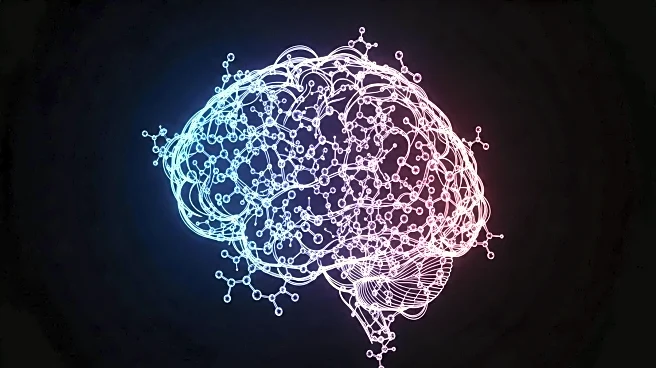What's Happening?
Recent research published in Cell has uncovered a dynamic role for dopamine as a teaching signal in shaping individual learning strategies. The study demonstrates that dopamine acts beyond classical reward prediction error models, guiding personalized learning trajectories over time. Using longitudinal behavioral tracking and real-time dopamine measurements, researchers found that dopamine signals evolve throughout learning, initially reflecting reward outcomes and later shifting towards task-relevant stimuli. This shift is influenced by early behavioral biases and diverse solution strategies, leading to strategy-specific dopamine dynamics.
Why It's Important?
The findings offer new insights into the complexity of long-term learning processes, challenging traditional reinforcement learning models that fail to capture strategic diversity. Understanding dopamine's role in personalized learning could have significant implications for developing therapeutic strategies for disorders related to reward-driven behaviors, such as addiction and depression. The study also provides a framework for exploring other neurotransmission systems involved in associative and reinforcement learning, potentially broadening the scope of neuroscience research.
Beyond the Headlines
The research highlights dopamine as a stimulus-contingent teaching signal, suggesting a broader role in guiding individualized learning. This challenges the classical view of dopamine as merely encoding reward prediction errors, opening new directions for neuroscience research. The study's computational model, the Tutor-Executor framework, offers a biologically plausible approach to understanding how partial, input-specific reward prediction errors shape strategy development and adaptive behavior.









